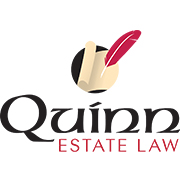Probate Fees: The Perils of Joint Ownership
Ancaster, Ontario wills and estate planning lawyer Eileen Quinn offers some insights into probate planning and the perils of joint ownership to avoid probate fees:
Many individuals want to avoid probate fees at all costs. The thought of paying probate fees seems to drive people crazy. No one wants to pay any more money to the government than we have to but you have to be very careful. Probate planning should not be the main focus in your estate plan. If so, it can detrimentally affect the distribution of your estate with unintended consequences for your beneficiaries. Probate fees (formally known as Estate Administration Tax) are calculated on the value of the assets in the deceased’s estate using the following formula: $5.00 per $1,000 on the first $50,000 plus $15.00 per $1000 on the value over $50,000. The probate fees are approximately 1.5% of the value of the deceased’s estate and are payable at the time that the application for probate is submitted to the Ontario Superior Court of Justice.
So what do people do to try to avoid these probate fees? Well, they usually add a joint owner to the assets. When one owner dies the surviving owner becomes the owner fo the asset and the estate of the deceased person is not entitled to any portion, since the asset does not pass through the estate, no probate fees are payable. Joint ownership of property is commonly used as an estate planning tool and in certain situations (i.e. between spouses in a first marriage), it is the best way to hold assets and avoid probate. However, problems can arise where parents add their adult children as joint owners. This type of planning can do more harm than good and I normally advise against it because of a number of potential pitfalls:
Loss of Control – Once the parent adds the name of the child to the asset, the parent no longer has complete control over the asset and will need to obtain consent from the child to take any action or make any decision with respect to the asset.
Trigger of Capital Gains Tax – Adding a new owner to an asset may be considered by the Canada Revenue Agency as a “deemed disposition” and this can give rise to a capital gains tax liability. In addition, if the parent adds the child’s name to their home, and the child doesn’t live there, half of the principal residence exemption may be lost for those years following the transfer of the property.
Exposure to Family Law or Creditor Claims – If a child who is a joint owner of the parent’s assets gets divorced, the child’s spouse can claim the assets (to the extent of the child’s interest in the assets) as part of the child’s net family property in divorce proceedings. If the child becomes bankrupt, the trustee-in-bankruptcy can claim the assets (again to the extent of the child’s interest) as part of the child’s assets.
Possible Unequal Treatment of Beneficiaries – If the parent adds the names of all their children to the asset, and one child predeceases the parent, then upon the parent’s death, the asset will pass to the surviving children. The risk is that the children of the deceased child are then disinherited from their parent’s share of the asset. Or if the parent has two children, and only adds one child’s name to the asset, then on the parent’s death, the property will pass to t hat one child, who may not tell the other sibling. Where a parent holds an asset jointly with an adult child, there is a legal presumption that the child holds the asset as trustee and the asset will form part of the parent’s estate. However, this is only a presumption, and it may be rebutted by evidence to the contrary. The outcome will hinge upon the following question: What did the parent really intend? It is imperative that the intentions are clearly documented, otherwise the final outcome may not be what was intended.
When considering the perils of joint ownership, just remember that this was all done to save 1.5% in probate fees. The monetary and emotional cost of resolving these perils makes the probate fee savings pale in comparison.
Eileen Quinn is a Canadian lawyer practising exclusively in the area of estate law including wills, powers of attorney, trusts and estate administration. She is dedicated to helping her clients understand their estate planning options and enjoys working with them and their advisors to ensure that their individual estate planning goals are achieved. Eileen offers convenient appointments in your home or workplace at times to suit your schedule. Eileen Quinn is a full member of the Society of Trust and Estate Practitioners (STEP).
 Eileen Quinn, LL.B. (Hons.), TEP
Eileen Quinn, LL.B. (Hons.), TEP
“Where There’s a Will there’s your way.”
T: 289-239-7772 E: equinn@quinnestatelaw.ca
Website: QuinnEstateLaw.ca
Disclaimer: The information presented in this post is for general information purposes only. This content is not intended to be legal advice and should not be relied on to make legal decisions. If you require specific advice, you should contact and retain a lawyer directly. © 2015 Copyright Quinn Estate Law
